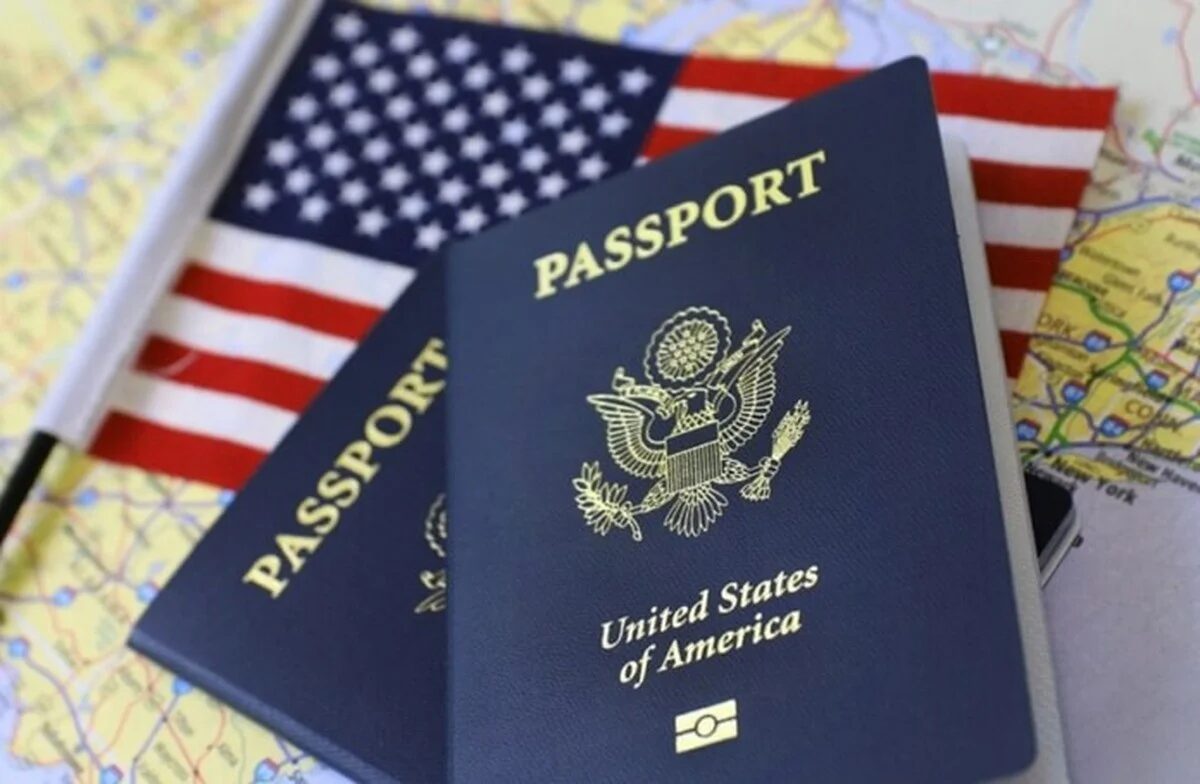In a significant development for American travelers, the United States passport has dropped to its lowest position ever in global passport rankings. According to the latest Henley Passport Index released this week, the US passport now ranks 12th place globally, marking the first time American passports have fallen below the top 10 most powerful passports worldwide. The ranking, compiled using data from the International Air Transport Association (IATA), shows that US citizens now enjoy visa-free access to 180 out of 227 destinations, a notable decline that reflects shifting global mobility dynamics and raises important questions about America’s position in international travel hierarchies.
Understanding the Dramatic Ranking Drop
The US passport ranking decline represents more than a minor statistical shift. Earlier in 2025, the American passport held the 9th position on the Henley Passport Index, making this drop to 12th place particularly striking. The United States now shares its ranking with Malaysia, a development that surprised many travel industry analysts and international relations experts.
The Henley Passport Index measures passport strength by calculating the number of destinations holders can access without obtaining a visa in advance. This methodology provides objective data about global mobility privileges and reflects the diplomatic relationships and reciprocal agreements nations maintain with each other.
Expert Analysis: What the Decline Signals
Dr. Christian H. Kaelin, chairman of Henley & Partners, offered sobering analysis of the US passport’s declining strength: “The declining strength of the U.S. passport over the past decade is more than just a reshuffle in rankings—it signals a fundamental shift in global mobility and soft power dynamics.”
Kaelin emphasized that this trend reflects broader geopolitical changes: “Nations that embrace openness and cooperation are surging ahead, while those resting on past privilege are being left behind.” This statement suggests that the US passport decline stems from policy decisions and international relations approaches rather than random fluctuation.
Key Factors Behind the Ranking Drop
Loss of Visa-Free Access to Brazil
Henley & Partners attributed part of the US passport’s weakening position to the loss of visa-free travel to Brazil due to lack of reciprocity. Brazil previously allowed American citizens to enter without visas, but changed this policy when the United States maintained visa requirements for Brazilian nationals.
This reciprocity principle increasingly influences international travel policies, with countries demanding equal treatment for their citizens. The Brazil visa requirement represents a significant loss, as Brazil is a major tourism destination and economic power in South America.
Exclusion from China’s Visa-Free Expansion
Another major factor in the ranking decline involves China’s rapidly expanding visa-free list from which the United States remains excluded. As China opens its borders to more nationalities to boost tourism and business travel, American passport holders have not received similar treatment.
This exclusion reflects complex US-China relations and highlights how diplomatic tensions directly impact travel freedoms for ordinary citizens. China represents one of the world’s largest travel markets, making this exclusion particularly consequential for the US passport’s global utility.
Vietnam and Other Southeast Asian Nations
The United States also lacks visa-free access to countries like Vietnam, another popular travel destination in Southeast Asia. While many European and Asian passport holders enjoy easier access to Vietnam, American travelers must apply for Vietnamese visas in advance.
These individual restrictions accumulate to significantly impact the US passport’s overall ranking in global mobility indices.
Limited US Visa-Free Access for Foreign Nationals
The reciprocity issue extends to travelers wanting to visit the United States. Currently, only citizens from 46 countries can enter the US without obtaining a visa through the Visa Waiver Program. This relatively limited list contrasts sharply with top-ranking countries that maintain much broader visa-free policies.
The restrictive approach to US entry requirements may contribute to other nations implementing similar restrictions on American travelers, creating a cycle that diminishes the US passport’s global access.
Top-Ranking Passports in 2025
Singapore Claims Top Position
Singapore earned the distinction of holding the world’s most powerful passport in 2025, providing visa-free access to 193 different destinations. This represents the highest level of global mobility available to any nationality.
Singapore’s passport strength reflects the nation’s careful diplomatic engagement, strong economic ties with nations worldwide, and reputation as a reliable international partner. The city-state’s small population and strategic approach to international relations have yielded remarkable travel freedom for its citizens.
South Korea and Japan Follow Close Behind
South Korea secured second place in the rankings with visa-free access to 190 destinations, demonstrating the strong passport power of East Asian nations. Japan claimed third position with visa-free access to 189 destinations, continuing its tradition of holding one of the world’s strongest passports.
The dominance of Asian passports in the top rankings represents a notable shift from decades past when European and North American passports typically held the strongest positions. This change reflects Asia’s growing economic influence and diplomatic engagement.
European Passport Performance
While not mentioned in the top three, several European Union passports traditionally rank very high on the Henley Index, with countries like Germany, France, Italy, and Spain typically offering visa-free access to 185-190 destinations. The EU’s collective approach to international agreements benefits all member states’ passport holders.
Practical Implications for American Travelers
Planning International Trips
The US passport ranking decline creates practical challenges for American travelers planning international trips. Destinations that previously allowed visa-free entry now require Americans to apply for visas in advance, adding time, cost, and complexity to travel planning.
Visa applications typically require:
- Completed application forms
- Passport photos meeting specific requirements
- Supporting documents like hotel reservations or return tickets
- Application fees ranging from $30 to $160 or more
- Processing time from several days to several weeks
These requirements make spontaneous international travel more difficult and increase the overall cost of traveling for American citizens.
Passport Validity Requirements
When planning international travel, American travelers must remember that many countries require passports to remain valid for at least six months beyond travel dates. Some airlines won’t allow passengers to board flights if this requirement isn’t met, according to the State Department.
This six-month passport validity rule means travelers should check their passport expiration dates well in advance of trips and renew if necessary. Missing this requirement can result in denied boarding and ruined travel plans.
Current Passport Processing Information
Standard Processing Times
The US State Department currently reports passport processing times of four to six weeks for routine service and two to three weeks for expedited service. These timelines can fluctuate based on application volume, particularly before summer travel season and major holidays.
American travelers planning international trips should apply for passport renewals well in advance to avoid delays. The State Department recommends applying at least three months before planned international travel.
Online Renewal Options
In a modernization effort, the State Department recently began accepting passport renewal requests online, streamlining the process for eligible applicants. This online passport renewal system offers convenience for travelers who meet specific criteria:
- Current passport is undamaged and in your possession
- Current passport was issued within the last 15 years
- Current passport was issued when you were 16 years or older
- Current passport was issued in your current name
Online passport renewal typically offers faster processing and greater convenience than traditional mail-in applications.
The Evolution of Passport Functions
From Travel Document to Souvenir
Passports serve their primary function as documentation for international travel, but they’ve also evolved into cherished souvenirs for many travelers. Passport stamps from various countries create visual records of travel experiences and become sources of pride for frequent international travelers.
Many travelers specifically seek out unique or artistic passport stamps from different countries, with some destinations known for particularly beautiful or creative stamps. These physical mementos create tangible connections to travel memories.
Digital Border Systems Replacing Stamps
However, several countries are moving away from traditional passport stamping. The European Union recently started implementing a new Entry and Exit System (EES) utilizing biometric data to track travelers entering and exiting 29 European countries.
This digital border control system replaces physical stamps with electronic records, improving security and efficiency but eliminating the traditional souvenir aspect of international travel. The biometric entry system collects fingerprints and facial images from travelers, storing this information in databases rather than marking passports.
Other regions are considering similar systems, suggesting the era of passport stamps may be ending. While this improves border security and reduces processing times, it represents a loss for travelers who value the tangible record stamps provide.
Historical Context of US Passport Strength
Previous Dominance
The United States passport historically ranked among the world’s most powerful, often holding top positions in global mobility rankings. This strength reflected America’s economic power, diplomatic influence, and extensive international agreements.
For decades, American travelers enjoyed exceptional travel freedom, able to visit most countries without advance visa arrangements. This privilege supported both leisure travel and business activities worldwide.
Decade-Long Decline
Dr. Kaelin’s reference to the US passport’s declining strength “over the past decade” indicates this isn’t a sudden development but rather a gradual trend. Multiple factors have contributed to this erosion:
Reciprocity disputes with various nations over visa policies
Diplomatic tensions affecting bilateral agreements
Security concerns leading to more restrictive travel policies
Rise of other nations improving their own passport strength through proactive diplomacy
Global Mobility and Soft Power
Passport Rankings as Diplomatic Indicators
Passport strength serves as a tangible measure of a nation’s soft power—its ability to influence through attraction and cooperation rather than coercion. Countries with powerful passports typically maintain:
- Strong diplomatic relationships with numerous nations
- Robust international trade agreements
- Positive global reputations regarding security and tourism
- Reciprocal visa policies that encourage similar treatment from other countries
The US passport decline suggests diminishing American soft power in certain contexts, particularly regarding international mobility and diplomatic cooperation.
Economic Implications
Passport power also carries economic implications. Citizens with strong passports enjoy advantages in:
International business: Easier travel facilitates business opportunities and trade relationships
Tourism spending: Visa-free access encourages tourism, which benefits airlines, hotels, and tourism industries
Educational opportunities: Students can more easily access international education when visas aren’t required
Job markets: Professionals with powerful passports have greater flexibility for international employment
The US passport’s declining position may have subtle but real economic effects on American citizens and businesses.
What This Means for Future Travel
Adapting to New Reality
American travelers will need to adapt to the reality of reduced passport power:
Earlier planning: Visa applications require time, so spontaneous international travel becomes more difficult
Increased costs: Visa fees add to travel expenses
More documentation: Gathering required documents for visa applications adds complexity
Potential rejections: Unlike visa-free entry, visa applications can be denied, creating uncertainty
Potential for Change
The situation isn’t necessarily permanent. US passport strength could improve if:
The United States adopts more reciprocal visa policies with other nations
Diplomatic relations improve with countries currently restricting American travelers
International cooperation increases around travel facilitation
The US joins multilateral agreements promoting easier travel between member nations
Comparing Regional Passport Strength
Asian Passport Dominance
The top rankings dominated by Asian passports (Singapore, South Korea, Japan) reflect these nations’ strategic diplomatic approaches and strong international relations. These countries have prioritized global mobility for their citizens through careful bilateral negotiations and participation in international agreements.
European Passport Strength
European Union passports generally maintain strong positions through collective agreements and the EU’s diplomatic weight. The Schengen Agreement alone provides visa-free travel across 27 European countries, giving EU passport holders significant advantages.
American Continent Variations
Within the Americas, passport strength varies considerably. Canadian passports typically rank higher than US passports, while Latin American passports show wide variation depending on each nation’s diplomatic relationships and economic standing.
Travel Industry Perspectives
Impact on Tourism
The US passport ranking decline may affect American tourism patterns. As more destinations require visas, some American travelers might opt for domestic travel or countries maintaining visa-free access rather than dealing with visa application processes.
This could influence tourism revenue in countries that have implemented visa requirements for Americans, potentially creating economic incentives to reconsider these policies.
Airlines and Travel Services
Airlines and travel agencies must educate American customers about changing visa requirements. The complexity adds another layer to travel planning, potentially affecting booking patterns and customer service needs.
Looking Forward
The US passport’s fall to 12th place represents a significant moment in global mobility history. Whether this trend continues or reverses depends on multiple factors, including US foreign policy decisions, reciprocity agreements, and broader geopolitical developments.
For American travelers, the situation underscores the importance of:
- Staying informed about visa requirements for intended destinations
- Planning international travel well in advance
- Considering visa costs when budgeting for trips
- Maintaining valid passports with adequate remaining validity
- Understanding that passport power isn’t static but reflects changing international relations
At The Inspiring Insight, we believe that understanding these global mobility trends empowers travelers to navigate an increasingly complex world. While the US passport decline presents challenges for American travelers, it also offers perspective on how international cooperation and diplomatic relationships directly impact everyday people. The rankings remind us that travel freedom isn’t guaranteed by nationality alone but results from ongoing diplomatic engagement and mutual respect between nations. As the world evolves, so too will the dynamics of global mobility, creating both challenges and opportunities for those who seek to explore beyond their borders.



